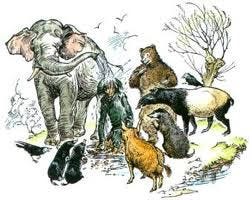I talk to people like they are my students.
Perhaps that is arrogant. What I mean is, I talk to my students like they are people.
Cue the image of the “cool teacher”. Not the wanna-be, but the genuine article. He gets you. He’s with it.
As a matter of policy, I do not discuss popular culture in the classroom. I did not author the policy, but I think it a good one. It aligns with what the classroom is, or ought to be: a particular place for a particular people doing a particular activity.
Teaching is humane. The teacher models humanity, and his students imitate him. If honest, precise, deliberate speech is good for us, then that is how a teacher should speak. He should care which words he uses and admonish or exhort his students to the same standard.
“Teacher voice” occurs when the teacher addresses his students as baboons. He lowers and slows his voice. He maintains eye contact. He makes no sudden movements; but for the whiteboard, he would back away slowly. “Teacher voice” is especially encouraged at the elementary level, presumably because high school students have the nose for bull-shit. In my experience, younger noses are just as good, but grown baboons are savage.
The “teacher voice” is affectation. The practice coincides with a view of teaching as trickery. Play the right notes, and like Orpheus you can put the dragon to sleep and secure the Golden Fleece.
Humane education is truthful. It is affected, but in the way a human life is. Teaching, and life, are dramatic, and drama is distinct from deceit. My exchange with an Uber driver is performative, at least at first. We all know the ritual small-talk. Through the ritual, a recognition of the other as other forms in each mind. Perhaps before the ride is over, each of us will reveal a distinct fact that was not manifest. Perhaps not. Either way, the scene unfolds a discovery that began in affectation.
I am often dramatic with my students. Teaching is a performance. I try not to trick my students because a lie with good intentions is still a lie. I try to speak as I wish to be spoken to: honestly, precisely, and with a willingness to linger over perplexities.
They may be baboons, but they are also rational, which means they like true things. And if your students tolerate (let alone like) hearing you speak, you already have a leg up on the majority of teachers.



